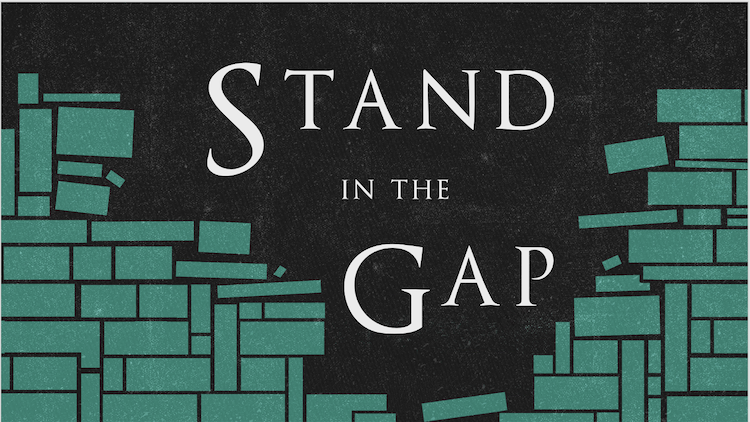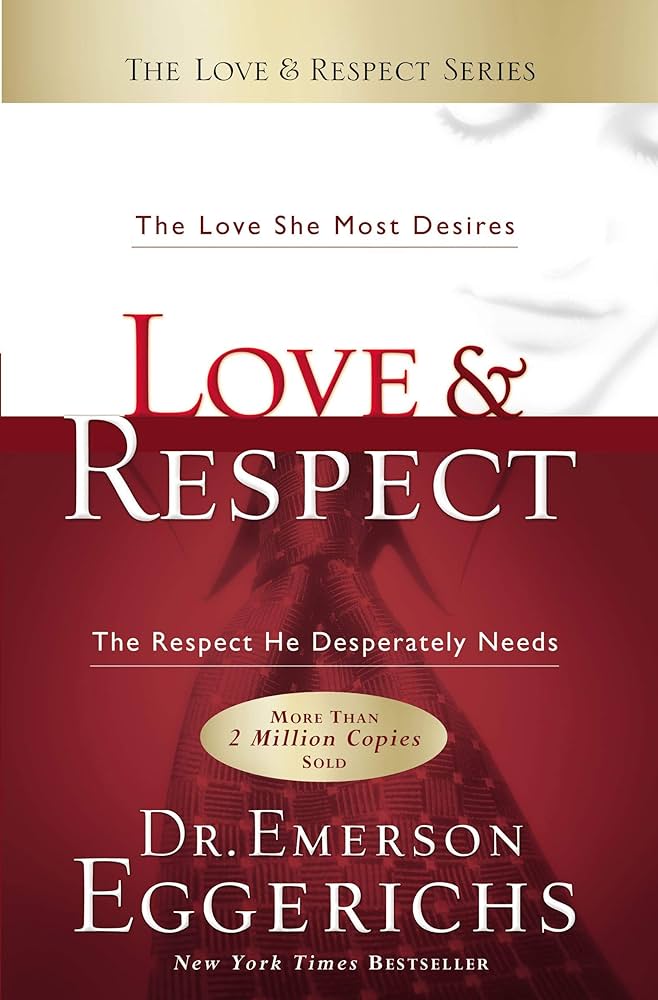Peruse Bible teachings and church happenings
Christian character
Need God, Not The Blessings He Gives
Wednesday, April 03, 2024The first commandment in God’s top ten was: “I am the Lord the your God. You shall have no other gods before me.” (Ex. 20:2-3) It told the people that God comes first. Period. Obviously, that means that we must never choose that which is evil over God’s things. It also means that we must not allow even the morally good things in our lives to become gods that our hearts are devoted to more than they are to God.
Sometimes, we give far more of our hearts’ energy to the things that God has given us than we do to God himself. Like the Israelites of old, we need to occasionally be reminded not to let all the blessings that he has given us cause our hearts to be lifted up so that we “forget the LORD your God, who brought out of slavery” (see Deut. 8).
I recently heard a preacher and his wife describe the beautiful love that they share by saying, “It’s because we aren’t the most important people to each other. Her love isn’t the thing that fulfills me, and my love isn’t the thing that fulfills her. We love God most, and we’re each totally filled with his love. So it’s like when you go to a buffet and you’re completely full, then you can enjoy something sweet without the pressure of needing it.”
Would that we could think of all of our blessings that way. Would that our hearts were wholly devoted to God, so that whether we have blessings or not, we still feel that we have all we need. Would that we would never need anything more than we need God himself. Would that we would never seek anything other than him to fill our hearts and bring us true happiness.
- Dan Lankford, minister
Measured By Comparison
Sunday, March 10, 2024I once heard a man tell about an early experience he’d had in construction work. He was cutting rafters for a house, so he measured the first rafter by a tape measure, and then proceeded to measure the next one by the one that he had just cut—not using his tape measure again. Of course, that practice didn’t make much difference on the first handful of cuts. A careful check would have showed a difference of only small fractions of an inch. But after 100 rafters each cut in comparison to the one before, the difference from the first to the hundredth was over a foot. They weren’t even close to the original.
Don’t we often do the same thing spiritually?
In church life, we compare ourselves with a previous generation and see that we’re just a little different from them. But then, when two thousand years of church history have gone by, we may find that we’re a great distance from Christ’s original intent for his people.
In our personal lives, we sometimes compare ourselves with a previous generation and are satisfied that we measure close enough to them. But then, after generations, we may realize that our standards of right and wrong are far from God’s original intent for his people.
What’s the solution to this problem? Do we find a better generation to compare to? Do we try to just do better than them by comparison?
The solution is to stop comparing ourselves to other people, and just compare who we are to the standard of God’s word and Jesus’ way.
“When they measure themselves by one another and compare themselves with one another, they are without understanding.” (2 Cor. 10:12)
- Dan Lankford, minister
A Healthy Relationship With the News
Wednesday, March 06, 2024People have said for a long time that the news is only bad news; only telling us about the bad things that happen in the world. But modern news is much more than information. For better or worse, it’s rife with commentary, ideologies, philosophies, and worldview. Some news outlets do their best to dial back most of that, preferring to just focus on information. But others are blatant and open about it, treating what used to be called editorial content as the core of their business model.
So how can Christians have a spiritually healthy relationship with the news? Whether you tend toward conservative or moderate or liberal outlets, whether you watch it on TV or social media or wherever… How can we keep our minds and spirits from being dominated by the constant flow of bad news? How can we keep ourselves centered rather than letting an outsider ideology encroach?
Ultimately, it comes down to which voices we listen to the most. Jesus said that his sheep hear his voice and follow it. They do not listen to the other voices that call them out of his fold (John 10:4-5). Even if we hear a voice that we think would agree with Jesus, the key is that we turn and listen to Jesus as the supreme guiding voice. That takes commitment and constant practice (cf. Hb. 5:14). And it’s essential that Christians do this, because while the world is full of voices, only one voice speaks the words of eternal life (John 6:68).
So for some of us, the healthiest relationship with modern news is a completely distant one. Some of us need to practice more moderation in the relationship; spending less time hearing and thinking about news. Some of us need to change the outlets that we listen to in order to decrease our exposure to bad ideas and bad behavior. And all of us need to make sure that how we think about the world is entirely learned from God, with the news media taking second place (at best) in our consideration of ourselves and reality.
- Dan Lankford, minister
Stand In the Gap | One Voice To Teach Masculinity
Wednesday, February 28, 2024
There’s some serious confusion around manhood in our culture. If you turn to any number of different outlets, you’ll receive any number of conflicting views about how to become a man, what’s wrong with men, and what makes a good man. So how can we know which one is right? How can we know what masculinity is really supposed to be like?
The key is to block out all the noise and listen only to one voice. A voice that will tell us the truth. The voice of God.
The word of God has many glimpses of the same things we see wrong with men in the modern world. In the Bible, we see weakness in places where men should have been strong. We see oppression and abuse where men should have been kind and accommodating. We see men who oppress women and children, who are unfaithful to their wives and families, whose foolishness ruins the lives of others around them, and whose godless arrogance destroys them.
And yet… There are examples of godly masculinity that repeatedly shine as bright lights out of that darkness. There are men who embody gentleness, wisdom, strength, meekness, care, and righteousness… all at the same time. Are they perfect? No. All of them, except for One, fail in some way. And yet they showed us how to strive for the ideal.
This coming Sunday’s sermon will be for men. We’ll talk about the way that godly men should be characterized by humility. We’ll talk about how humility drives both tenderness and toughness, how it helps us know when to speak and when to keep quiet, how it helps us to step up for those who need us, and how it manifests in our habits of self-control and self-discipline.
God told Ezekiel that he was seeking “for a man to stand in the gap” (Ez. 22:30) to do the right thing before God and others. We want to be the godly men who can do that when God calls upon us. So this Sunday’s lesson will give us a little bit of guidance toward doing that better than we ever have before.
- Dan Lankford, minister
Entertained And Misaligned
Wednesday, February 21, 2024What do you most like to watch, listen to, or read? Does it fit with your being a sincere Christian?
Christians need to be intentional with the entertainment choices that we make. Streaming shows, books, movies, and social media videos that promote ungodly attitudes and sinful behaviors aren’t the kind of things that ought to characterize our habits. The things that we fill our minds and hearts with—the stories and thoughts to which we ascent—have a profound impact on us. Likable characters warm us up to their way of life, which is really problematic when that way of life is ungodly.
So let’s ask ourselves: Are we choosing to be entertained by senseless or careless violence? Is the loss of human life downplayed in our favorite stories, as though it were unimportant? Are we being led to laugh off certain sins? Is foul, sinful, cursing language used as though it were harmless? Are the things that we find entertaining attempting to make it unclear whether someone doing evil is a good guy or a bad guy, eroding our discernment about what’s right and wrong? Is sexuality portrayed in unholy ways that go beyond the proper love of husband and wife? Are things which God has declared sinful being portrayed as happy, freeing, pleasant, and good?
I recently heard a preacher note that when we allow ourselves to be entertained by something, we’re aligning our hearts with that thing, if only a little bit. There’s a small amount of conforming with its ideals that happens. And thinking about the danger of that reminded me of these words from Proverbs: “My son, if sinners entice you... my son, do not walk in the way with them; hold back your foot from their paths…” (Prv. 1:10-16) It’s a good reminder not to align ourselves with the world and their ways. Like the Spirit said through Paul, “Do not be conformed to this world, but be transformed by the renewal of your mind, that by testing you may discern what is the will of God, what is good and acceptable and perfect.” (Rm. 12:1)
The reality of living in a fallen world means that we won’t be able to put a full stop to the immorality that we see and hear about. The day-to-day world is full of it, and it finds its way into our lives in so many ways. But there’s a big difference between seeing immorality and seeking it. There’s a big difference between hearing of sins committed and honoring them as entertaining. There’s a big difference between knowing that sin is sinful and wondering if it’s sensible. The problem is not only what we see; it’s what we choose. Let’s make sure that we’re honestly trying to glorify God in everything that we do.
- Dan Lankford, minister
Active, Living Faith
Sunday, February 18, 2024“Show me your faith without your works and I will show you my faith by my works.” (Js. 2:18)
What are some things that you do that are specifically motivated by your belief that Jesus is the crucified and risen Son of God?
- Does that affect how much you give to those who are in need?
- Does it cause you to go visit fellow Christians who are sick or lonely?
- Does it make you hold your tongue from gossip, slander, or lashing out in anger?
- Does it motivate you to love your spouse exclusively and permanently?
- Does it drive you to dress in a modest, God-glorifying way?
- Does it make you responsible with your money: avoiding debt, giving to others, and choosing not to be greedy?
- Does it drive you to pray about life rather than complain about it?
- Does it keep you calm when anxiety would threaten to rule your thoughts and feelings?
- Does it help you see each person’s value with no partiality?
- Does it cause you to speak about Christ—to tell others what you believe and that they should believe in him too?
James said that if we have faith but that faith doesn’t act, then it’s useless. So let’s have authentic faith, brothers and sisters. Let’s be defined by what we believe and what we do in service to God. Let’s be sure that we are doing the good works God made us for, because that’s how we’ll know that our faith is the real thing.
“For as the body apart from the spirit is dead, so also faith apart from works is dead.” (Js. 2:26)
- Dan Lankford, minister
Me & The Screen | Parenting with Screens
Wednesday, January 31, 2024
Many Christians have a pessimistic outlook on raising kids. We believe it’s a risk, saying things like, “We shouldn’t want to bring kids into a world that’s gotten this bad. It’s worse than it’s ever been. It would just eat them alive, destroying their faith.” But the world has always been evil. I doubt that “the world is worse for our kids than it’s ever been.” Perhaps, though, the world’s wickedness comes closer to them, thanks, at least in part, to the presence of smart devices.
One of the unique challenges of Christian parenting in our day is handling screens wisely in our families. So, here’s some advice to Christian parents for helping our kids serve Christ when surrounded by screens.
- Regulate their time on screens. Encourage intentional, tangible activities like conversation, engagement, reading, work, and generosity. Set a whole-family ‘fast’ from your tech once in awhile.
- Set parental blocks. Gateways on your wifi routers, blocked-out apps, time limits, etc.
- Unapologetically invade their privacy for the sake of spiritual accountability. There isn’t anything unbiblical about doing that, so long as it’s truly for their good and not justification for us to be on a power trip. Check their browsing histories, texts sent and received, downloads, and apps. Let them know from the outset that this kind of accountability will be standard procedures with your family.
- Finally, talk openly about what you’re doing as a parent and why. Caveat: be wise enough with in those conversations not to accidentally tell them how to find ungodliness (a mistake that I’ve heard preachers and parents make more than once), but for older kids, do let them know the purpose behind your decisions. Remind them that you’re trying to foster a true, abiding love for God in their hearts.
Jesus said, “The eye is the lamp of the body. So, if your eye is healthy, your whole body will be full of light, but if your eye is bad, your whole body will be full of darkness.” (Mt. 6:22-23) Parents, let’s be wise and diligent to keep our families’ hearts full of God’s light.
- Dan Lankford, minister
------------
[images sourced from Storyset.com]
Faithful Reading: Love & Respect
Sunday, January 28, 2024
One thing that Christians sometimes neglect to include in their efforts toward spiritual growth is the reading of faithful books. Obviously, the works of uninspired men are not of the same caliber as the inspired word of God when it comes to guiding our spiritual growth. But, just as we listen weekly to godly teachers & preachers who offer their insights into the word of God, there have been many authors down through the centuries who have faithfully expounded the Scriptures’ meaning in some really helpful ways. So, on Sundays in January, these articles will recommend spiritual books that can help us more clearly see God’s plan and our place within it.
-----------------------------------------
Love & Respect, by Emerson Eggerichs, is about godly marriage. Specifically, it’s about following God’s plan for marriage as laid out in one short passage from the book of Ephesians. The Holy Spirit’s point runs from Ephesians 5:22 thru verse 33, but verse 33 is the summary of the whole thought: “However, let each one of you love his wife as himself, and let the wife see that she respects her husband.” Eggerichs notes how the Beatles sang, “All you need is love,” and so many books on marriage agree with them. And yet, there is more than love in God’s plan for healthy marriages: there is love and respect in Ephesians 5.
The author, speaking out of years’ worth of experience as a professional marriage counselor, helpfully describes what he calls …The Crazy Cycle. Simply: “Without love, she reacts with out respect. And without respect, he reacts without love.” And going thru this cycle makes both spouses frustrated. This simple articulation probably rings bells in many of our minds—that we have each sometimes felt the lack of these important things from our spouses, and we know that we have often denied our spouses what they truly need from us.
The book is like a long sermon based on a single Bible phrase, and it’s filled with elaboration on this simple concept. Some helpful pieces of advice from the book are as follows:
- “You can be right but still wrong, when you say it at the top of your voice.”
- “The Greek word Paul uses for love in this verse is agape, meaning unconditional love. And the wording of the rest of the passage strongly suggests that the husband should receive unconditional respect.”
- “Often, we focus on our own needs and simply overlook the needs of the other person.”
- “The more I meditated on these two passages of Scripture, the more I realized that if a husband is commanded to agape-love his wife, then she truly needs love. In fact, she needs it just as she needs air to breathe.”
- “[As a marriage counselor,] Sarah asked this wife a question that she asks many women who arrive at our conferences full of contempt for their husbands: ‘What if your son grew up and married someone like you?’ The woman’s mouth fell open.”
- “A husband is to obey the command to love even if his wife does not obey the command to respect, and a wife is to obey the command to respect even if the husband does not obey the command to love.”
If you and your spouse are struggling to find peace and enjoyment in your relationship, and if you’re ready to work together to change that and make your relationship into the kind that God intended, this book is a really good place to start.
-Dan Lankford, minister
Me & The Screen | Taking Responsibility For Ourselves
Wednesday, January 24, 2024
Screen devices are amoral things. They aren’t good or bad of themselves; they are tools that can be wielded in good ways or bad. And that means that responsibility falls on us. How can we be smart and spiritual about what we see and hear with them?
First, let’s just occasionally look away from screens and engage with the people most immediately in front of us. Sometimes, we simply use them too much, and we need to learn to ignore them in favor of a meaningful personal connection. With family and friends, at work or in worship, and especially when doing personal devotions, refusing to let a screen interfere will help us focus on the moment’s purpose.
Second, let’s learn to control what we see. Last week’s post talked about ‘the algorithms’ populating our screens with things we don’t want there. But there are settings that can be changed and blocking services that can be employed to stop a lot of that. So let’s be aware of the options that we have and use them. Filtering software and parental controls are widely available if we look.
More than that, let’s make ourselves accountable to regular check-ins with a more mature Christian—a place to confess a sin, talk about a temptation and the way of escape from it, or thank God together for a milestone amount of time that we’ve endured temptation.
Third, let’s just set ourselves some time limits so that we know when enough is enough. Maybe we shouldn’t put screens beside us when we go to bed. Maybe we should keep them out of arm’s reach during meal times. Maybe we should make a house rule for no ‘small screens’ after a certain time in the evening. In general, let’s build in some responsible time barriers where we’re training our minds not to need the screens.
Overall, this comes down to self-control. It’s about making sure that while the screens are lawful for us, we aren’t mastered by them (1 Cr. 6:12). So let’s pray for wisdom and strength to be self-controlled. Let’s put in the effort to protect ourselves from the foolishness and sin that threaten to creep into our lives. Whatever effort and new learning it requires of us, it will be worth it for the sake of our souls.
- Dan Lankford, minister
(images sourced from Storyset.com)
Me & The Screen | Some Things Are Just Off-Limits
Wednesday, January 17, 2024
In the Sermon on the Mount, Jesus took some of God’s commands and taught his followers how to keep our hearts several steps back from breaking those commands. One of his most memorable examples of this was these words: “You have heard that it was said, ‘You shall not commit adultery.’ But I say to you that everyone who looks at a woman with lustful intent has already committed adultery with her in his heart.” (Mt. 5:27-28)
To lust is to wilfully look at and think about anyone other than one’s spouse with sexual desire. This is what makes pronography wrong, and it’s what warns us to be very wise and to have some serious self-control with how we use all of our internet-connected screen devices.
Lust and pornography are the most serious challenges that many face with the screens. When we take Jesus’s words seriously, we start to realize how often we are confronted by the temptations to these things. And when it comes to our devices, we often find that the things which tempt us to lust are not only available, they relentlessly badger us, showing up surprisingly even when we deliberately seek to put them away. This problem is made particularly acute by the large-scale internet usage of “the algorithm.”
“The algorithm” is the common shorthand way of describing how dozens of services from TikTok to Amazon suggest content that machine-learning believes will interest an individual. It’s based on the typical online behavior patterns of people in our same age bracket and of our same gender. And it’s based, to a large extent, on our own browsing, searching, and viewing habits. So if you watch a lot of videos on a certain topic, whether innocuous or unholy, you’ll probably find that you’re being shown more of those videos. And if you’re being shown a lot of similar or related videos, ads, or suggested sites; it may be because the algorithm’s awareness that you’ve already gone there.
This is a good reminder for us to be on guard against lustful thoughts wherever they come to us. We don’t have to be hunting across the internet for unholy content; it’s already hunting us in every channel from the most innocent social media services to the far darker corners of the web. And so we first guard our hearts, and then we’ll have the motivation to learn how to guard our devices (more on that in next Wednesday’s post).
In Matthew 5, Jesus continued his teaching with these words: “if your right hand causes you to sin, cut it off and throw it away. For it is better that you lose one of your members than that your whole body go into hell.” (Mt. 5:30) If our screens are opening up a way into a temptation that we simply haven’t been able to endure, then Jesus’s advice to “cut off your right hand” might best be applied to our cutting off the thing that we hold in our hand. Maybe either a fast from screens or an all-out purge of them is the best thing some of us could do for our spiritual well-being. Better that we enter into life without a smartphone than to enter into Hell with one. Is that a sacrifice? Of course. Is it worth it? Absolutely!
- Dan Lankford, minister
(images sourced from Storyset.com)

